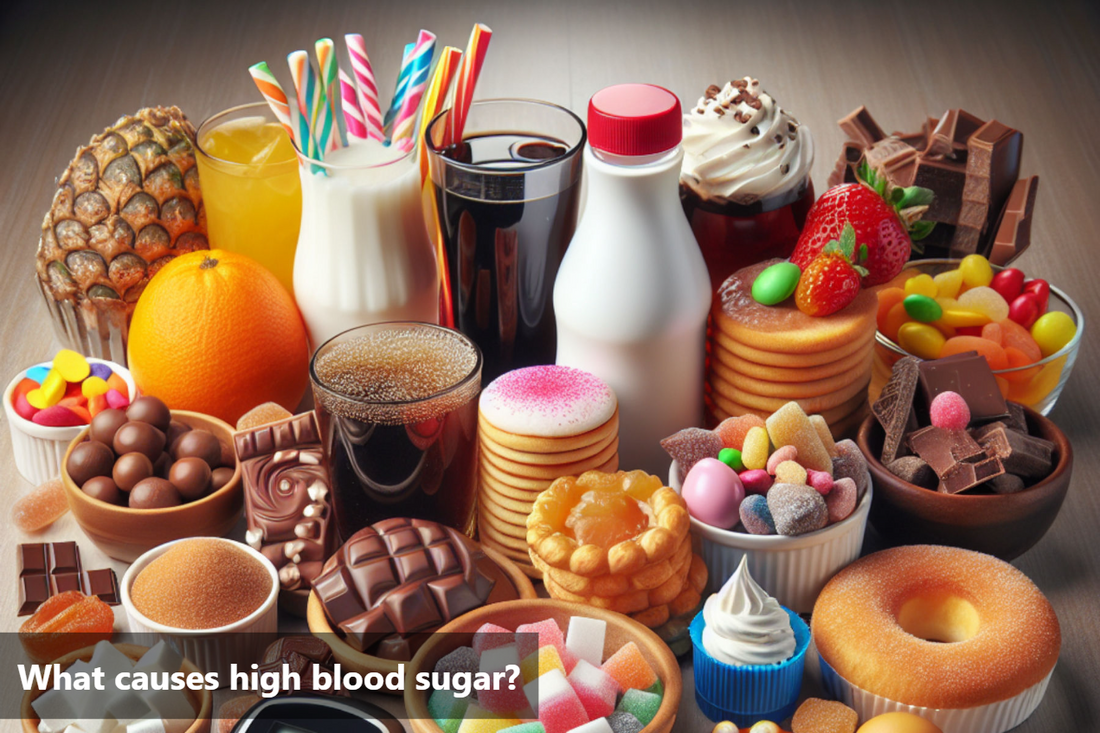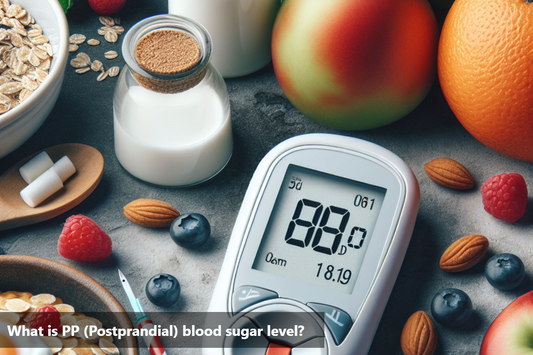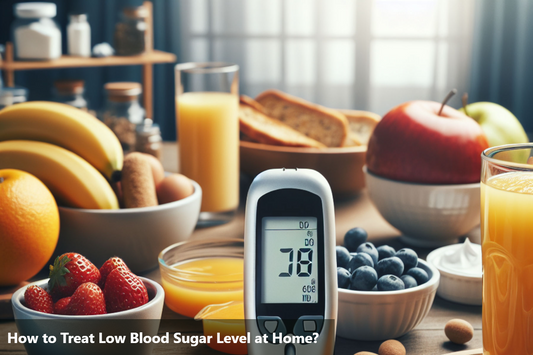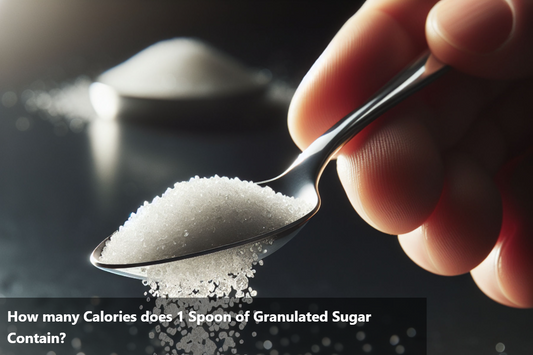High blood sugar, or hyperglycemia, occurs when there is excess sugar in the blood due to diet, inactivity, stress, medications, or health conditions. Untreated high blood sugar can lead to diabetes, heart problems, nerve damage, and vision issues, weakening the immune system. Symptoms include thirst, frequent urination, fatigue, and blurred vision. Controlling blood sugar through monitoring, diet, exercise, and stress management is crucial for preventing long-term complications and maintaining health. Regular blood sugar checks and a healthy lifestyle can reduce the risk of high blood sugar-related issues.
Causes of High Blood Sugar
High blood sugar, also called hyperglycemia, happens when there is too much sugar in the bloodstream. Various factors can lead to high blood sugar levels, including:
Insulin Resistance: This occurs when the body's cells become less responsive to insulin, the hormone that controls blood sugar levels. It can result in elevated blood sugar levels.
Diabetes: A long-lasting condition marked by high blood sugar levels because of either not enough insulin production (type 1 diabetes) or ineffective insulin use by the body (type 2 diabetes). People with diabetes may have hyperglycemia if not managing their condition well through medicine, diet, and lifestyle changes.
Poor Diet: Eating too many carbs, especially refined sugars and simple carbs in sugary drinks, candy, and processed foods, can spike blood sugar levels. Not having enough fiber and having unbalanced meals lacking in protein and good fats can also cause unstable blood sugar levels.
Lack of Physical Activity: Being active helps control blood sugar levels by aiding glucose uptake in muscles and improving insulin sensitivity. Being inactive and not exercising regularly can lead to insulin resistance and high blood sugar levels.
Medications: Some drugs like corticosteroids (e.g., prednisone), diuretics, beta-blockers, and certain antidepressants can affect blood sugar regulation and cause hyperglycemia as a side effect.
Stress: Stress can raise blood sugar levels as it triggers the release of cortisol and adrenaline hormones. Consistent stress and high cortisol levels can lead to insulin resistance and worsen blood sugar control in people with diabetes.
Illness or Infection: Sudden illnesses, infections, and inflammatory conditions can temporarily raise blood sugar levels due to stress hormone release and the body's inflammatory response. People with diabetes may have trouble managing blood sugar levels when sick and may need changes to their medication plan.
Hormonal Changes: Hormone shifts during puberty, pregnancy, menopause, or certain medical conditions (e.g., polycystic ovary syndrome) can impact insulin sensitivity and cause blood sugar level changes.
Alcohol Consumption: Alcohol can affect blood sugar control by influencing liver function and insulin sensitivity. Too much alcohol, especially on an empty stomach, can initially cause low blood sugar followed by rebound high blood sugar.
Effects of High Blood Sugar
Nerve Damage (Neuropathy): Prolonged exposure to high blood sugar levels can damage nerves throughout the body, causing symptoms such as numbness, tingling, burning sensations, or pain, particularly in the hands and feet. This condition is known as diabetic neuropathy and can lead to complications such as diabetic foot ulcers and Charcot arthropathy.
Cardiovascular Complications: High blood sugar levels are associated with an increased risk of cardiovascular disease, including heart disease, stroke, and peripheral artery disease. Elevated blood sugar levels can damage blood vessels, promote inflammation, and contribute to the formation of plaques in arteries.
Kidney Damage (Nephropathy): Chronic hyperglycemia can damage the kidneys' filtering units (nephrons), leading to diabetic nephropathy. This condition can progress to chronic kidney disease (CKD) and eventually end-stage renal disease (ESRD), requiring dialysis or kidney transplantation.
Vision Loss (Retinopathy): Prolonged exposure to high blood sugar levels can damage the blood vessels in the retina, the light-sensitive tissue at the back of the eye. This can lead to diabetic retinopathy, a leading cause of vision loss and blindness in adults.
Diabetic Ketoacidosis (DKA) or Hyperosmolar Hyperglycemic State (HHS): Extremely high blood sugar levels, if left untreated, can lead to life-threatening complications such as diabetic ketoacidosis (DKA) or hyperosmolar hyperglycemic state (HHS). These conditions require immediate medical attention and treatment in a hospital setting
Managing High Blood Sugar
Healthy Eating: Focus on a balanced diet rich in fruits, vegetables, whole grains, and lean proteins. Limit your intake of sugary and processed foods that can cause blood sugar spikes.
Regular Exercise: Incorporate regular physical activity into your routine. Exercise helps improve insulin sensitivity and can lower blood sugar levels. Aim for at least 30 minutes of moderate exercise most days of the week.
Monitor Blood Sugar: Regularly check your blood sugar levels as advised by your healthcare provider. This allows you to track your progress and make necessary adjustments to your management plan.
Medication Adherence: If prescribed, take your medications consistently and as directed. Medication can help regulate blood sugar levels, especially when coupled with lifestyle changes.
Stress Management: High stress levels can contribute to elevated blood sugar. Practice relaxation techniques such as deep breathing, meditation, or yoga to help manage stress.
By implementing these tips and working closely with your healthcare team, you can effectively manage high blood sugar and improve your overall quality of life. Remember, small changes can lead to significant improvements in your health.
Bottom Line
Understanding the causes and effects of high blood sugar is crucial for our well-being. High blood sugar increases the risk of serious health issues like diabetes and heart disease, as well as nerve damage. Factors such as sugar consumption, lack of exercise, certain medications, stress, and existing health conditions can contribute to elevated blood sugar levels. By being aware of these factors and their impacts, we can proactively manage high blood sugar through lifestyle changes, monitoring levels regularly, maintaining a balanced diet, and following prescribed treatments. Keeping blood sugar in check is essential for a healthy and fulfilling life.
This Blog post is an initiative by DiabeSmart, to provide accurate and Nutritionist / Doctor approved information related to Diabetes. DiabeSmart is India's first Food brand designed specifically for Diabetics, that has been clinically tested on Diabetics and Pre-Diabetics to deliver 55% - 70% lower Sugar spikes. DiabeSmart is part of Lo! Foods - India's leading brand for Everyday Functional Health foods.











